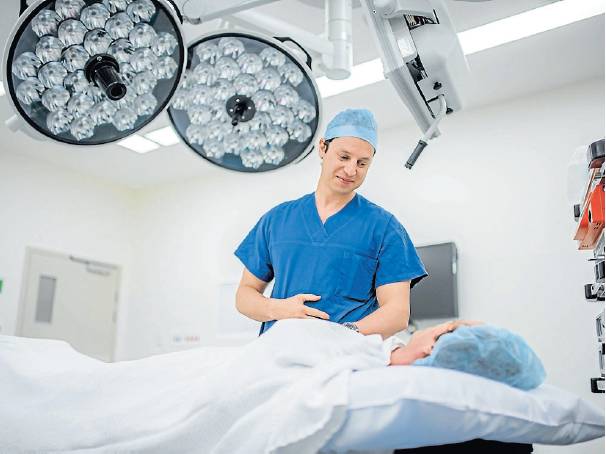Entrust yourself to experts in the field
Cosmetic surgery is not a one-size-fits-all, cookie cutter proposition. The enhancements to face or body that look sensational on one person may not suit another.
Not just surgical skill is required to achieve the optimum outcome; a personalised approached for each individual is also required. Key to this is finding the right cosmetic surgeon. So where does a would-be patient begin?
‘‘The internet of course is a good starting point,’’ says Dr Michael Yunaev, a specialist oncoplastic and cosmetic breast and general surgeon and principal doctor at Sydney’s Breast & Body Clinic.
‘‘There’s a lot of information to be had, albeit good and bad. Start with clinics and surgeons for the procedures in which you’re specifically interested.
‘‘Word of mouth is of course very valuable – speaking to people who’ve had the experience and seeing results first hand.
‘‘But nothing beats meeting surgeons face to face; having consultations to assess whether you feel comfortable with them, to determine how experienced they are in that procedure and to see [before and after photo] examples of their work.
‘‘Patients shouldn’t allow themselves to be swayed by glitzy Instagram photos or other social media [and] promotional hype. These are not always true representations. ‘‘I would recommend a patient seeing at least two- to three surgeons to get different opinions before committing to one. ‘‘I’m due to have an orthopaedic procedure and this is exactly what I’m doing. ‘‘It can be costly as consultations are not free and require referrals, but it’s your body at stake, after all. It’s a very worthwhile investment.’’ Dr Yunaev says consultations give patients a very good idea of whether they will be submitting to the right hands. ‘‘A good and ethical surgeon will take time, answer any questions a patient may have and provide as much information about the procedure as possible,’’ he says. ‘‘They will listen to the patient without judgment but will make alternative suggestions if the surgeon believes what the patient is asking for will not be in their best interests.
‘‘An example would be a woman seeking a breast augmentation who wants a size or shape of implants that would be totally wrong for her body shape, overall appearance and even personality.’’
Conversely, Dr Yunaev says, if a surgeon seems too eager to close the deal, to do anything a patient wants without question, that patient should be wary.
‘‘I’d say this is likely a warning sign that the doctor values money more than the patient’s best interests. I would also urge people not to make their decision about a procedure based on who can do it cheapest. There is a lot of discounting in the industry and while some who offer services at prices way below the norm might be okay, to me it might be a sign they may lack the surgical training and experience required to achieve superior results as safely as possible.’’
Dr Yunaev is a highly trained surgeon with extensive experience and passion for treatment of all aspects of breast surgery, focusing on aesthetic surgery, breast cancer, benign and congenital problems, as well as general and abdominal surgery.
He says anyone considering cosmetic surgery should seek a FRACS (Fellow of the Royal Australasian College of Surgeons) practitioner. The FRACS distinction is awarded to specialist surgeons who have completed a minimum of 12 years’ medical and surgical education, with at least five years of specialist postgraduate training.
‘‘Cosmetic surgery as a specialty doesn’t exist in Australia, which leaves it open to doctors with minimal surgical training,’’ says Dr Yunaev.
‘‘FRACS is an all-important label that differentiates someone who’s finished a medical degree from those with years of specialist surgical training.’’
Any surgical or invasive procedure carries risk. Before proceeding, you should seek a second opinion from an appropriately qualified health practitioner.
‘‘Patients shouldn’t allow themselves to be swayed by glitzy Instagram photos.’’
Dr Michael Yunaev
